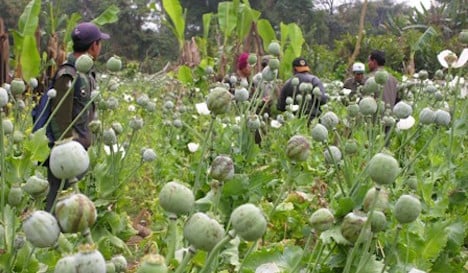The International Narcotics Control Board (INCB) tasked by the United Nations to oversee the existing legal vacuum with regards to the new drugs makes it easy to market these substances, often over the Internet.
"They can be natural materials or synthetic substances, often deliberately chemically engineered to circumvent existing international and domestic drug control measures," the INCB said in its latest report.
The problem is particularly serious in the United States where the phenomenon started around 10 years ago, and is quickly spreading to the rest of the world.
The number of new substances has doubled since 2009 with 388 new ones added to the list in October last year, the UN body said.
China is "one of the main sources of supply of new psychoactive substances", said the report.
The INCB also criticised the legalisation of cannabis in certain US states and in Uruguay, saying it went against international drug laws.
Increased levels of THC, the active ingredient in cannabis, is of particular concern, the INCB report said.
There has been a 37 percent increase in the potency of THC in the drugs seized in the United States for example and a 75 percent increase in cannabis coming from outside the country.
Increased opium production
The INCB is also worried about increased opium production given the revival of poppy cultivation in Myanmar and a 17 percent jump in opium output levels in Afghanistan over the period of a year.
The increase in Afghanistan's production has a considerable impact on the world market, and particularly on China and neighbouring Iran, with the country being the source of "80 percent of the world's illicit opium," the report said.
Increased illicit opium production in Afghanistan is directly related to a deterioration in security conditions in the country, said the INCB.
With only three percent of the crop seized, the risk is low for Afghan traffickers with the activity generating $ 2.2 billion (1.9 billion euros) in profits a year, the report said.
Persistent poverty in the Shan state of Myanmar has led to the increase in poppy cultivation in the country, the INCB believes.
The output has grown from 21,600 hectares (53,000 acres) in 2006 to 57,800 hectares in 2013, and has increased by over 14 percent in one year.
The organisation however welcomed the decrease in South American cocaine which it says has had a "perceptible impact on major consumer markets".
In North America, and to a lesser extent in Europe, the supply in 2014 remained well below 2006's record levels, the report said.



 Please whitelist us to continue reading.
Please whitelist us to continue reading.
Member comments